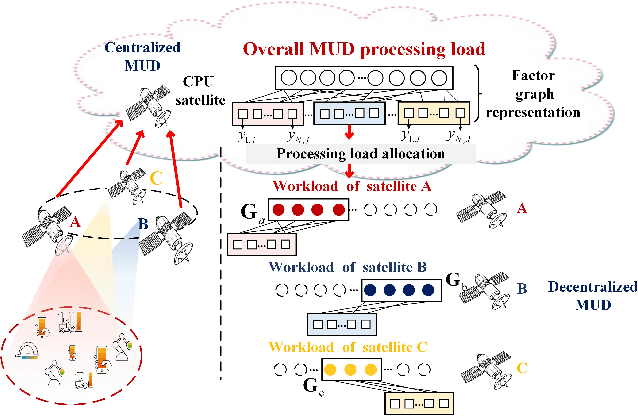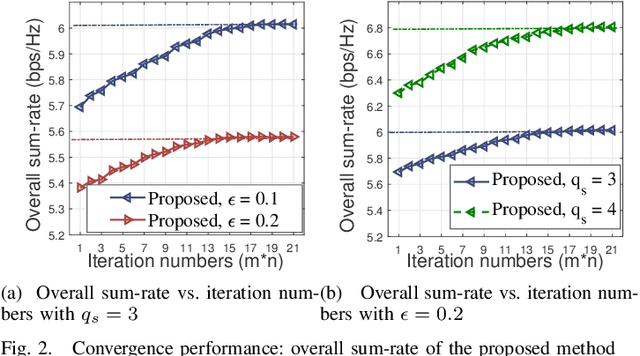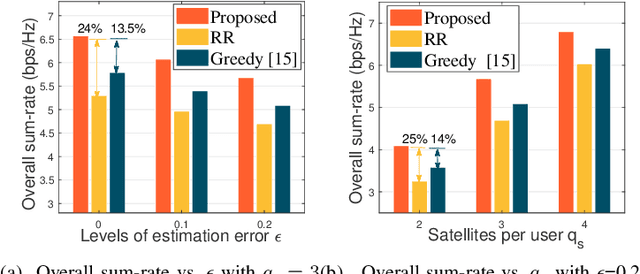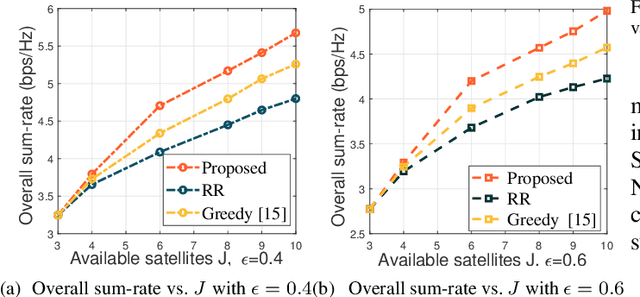Qiaolin Ouyang
Processing Load Allocation of On-Board Multi-User Detection for Payload-Constrained Satellite Networks
Mar 06, 2024



Abstract:The rapid advance of mega-constellation facilitates the booming of direct-to-satellite massive access, where multi-user detection is critical to alleviate the induced inter-user interference. While centralized implementation of on-board detection induces unaffordable complexity for a single satellite, this paper proposes to allocate the processing load among cooperative satellites for finest exploitation of distributed processing power. Observing the inherent disparities among users, we first excavate the closed-form trade-offs between achievable sum-rate and the processing load corresponding to the satellite-user matchings, which leads to a system sum-rate maximization problem under stringent payload constraints. To address the non-trivial integer matching, we develop a quadratic transformation to the original problem, and prove it an equivalent conversion. The problem is further simplified into a series of subproblems employing successive lower bound approximation which obtains polynomial-time complexity and converges within a few iterations. Numerical results show remarkably complexity reduction compared with centralized processing, as well as around 20\% sum-rate gain compared with other allocation methods.
 Add to Chrome
Add to Chrome Add to Firefox
Add to Firefox Add to Edge
Add to Edge